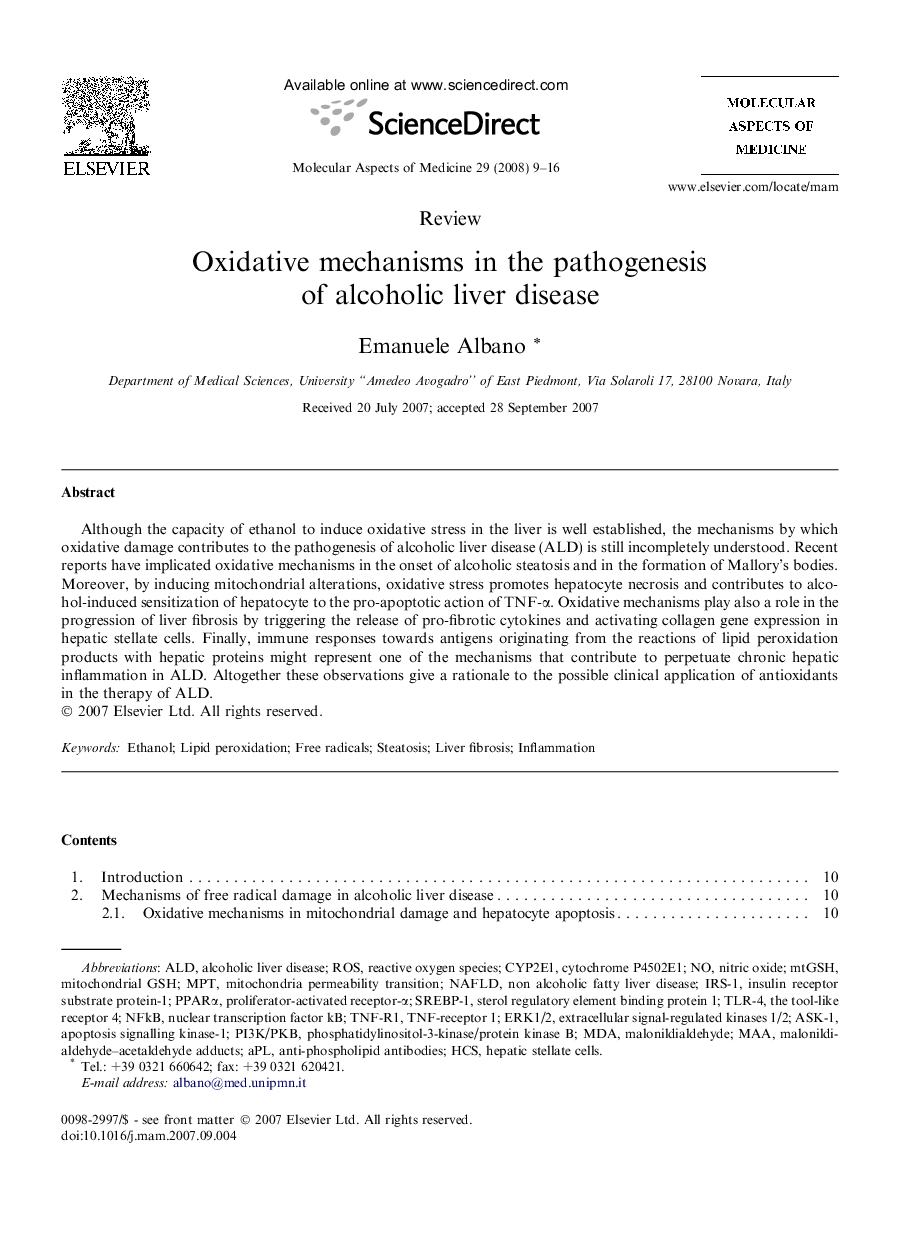| Article ID | Journal | Published Year | Pages | File Type |
|---|---|---|---|---|
| 1995923 | Molecular Aspects of Medicine | 2008 | 8 Pages |
Although the capacity of ethanol to induce oxidative stress in the liver is well established, the mechanisms by which oxidative damage contributes to the pathogenesis of alcoholic liver disease (ALD) is still incompletely understood. Recent reports have implicated oxidative mechanisms in the onset of alcoholic steatosis and in the formation of Mallory’s bodies. Moreover, by inducing mitochondrial alterations, oxidative stress promotes hepatocyte necrosis and contributes to alcohol-induced sensitization of hepatocyte to the pro-apoptotic action of TNF-α. Oxidative mechanisms play also a role in the progression of liver fibrosis by triggering the release of pro-fibrotic cytokines and activating collagen gene expression in hepatic stellate cells. Finally, immune responses towards antigens originating from the reactions of lipid peroxidation products with hepatic proteins might represent one of the mechanisms that contribute to perpetuate chronic hepatic inflammation in ALD. Altogether these observations give a rationale to the possible clinical application of antioxidants in the therapy of ALD.
